What Is the Real Google Adword Cost?
- Chase McGowan

- Sep 28, 2025
- 14 min read
Let's get one thing straight: the google adword cost isn't some fixed price on a menu. It’s a live auction. You’re bidding against your competitors for clicks and eyeballs, and what you pay can swing from a couple of dollars to over $50 per click depending on how fierce the competition is in your industry.
But that's just the tip of the iceberg. The price Google charges you is only one piece of the puzzle. The real cost—the number that truly hits your bottom line—is tied up in how well your money is actually managed. This is where you either find a strategic advantage or an expensive lesson.
What You Actually Pay for Google Ads
When you run a Google Ads campaign, you're not just buying clicks. You're buying outcomes. A new lead in your pipeline, a product flying off the virtual shelf, a phone ringing with a potential customer.
The total cost to get that result includes every single dollar spent, whether it was put to good use or completely wasted. And the biggest factor determining which of those it is? It’s not the Google auction; it’s the expertise—or lack thereof—of the person managing your account.
Too many businesses learn this lesson the hard way. They sign on with a huge, faceless agency that slaps the same generic strategy onto every client, regardless of their unique goals. These firms pass their massive overhead costs down to you, often charging a percentage of your ad spend. Think about that for a second—they make more money when you spend more money.
Your account ends up as just one of dozens managed by a junior employee who’s learning the ropes on your dime. That’s a recipe for disaster and inflated costs.
The Agency Trap vs. Expert Strategy
This is where you see a huge gap between what you're paying and what you're getting. An impersonal, bloated agency approach almost always leads to the same problems:
Wasted Spend: Your budget gets burned on keywords that don't convert and campaigns targeting the wrong audience, all because nobody is paying close enough attention.
Inflated Management Fees: The percentage-of-spend model creates a direct conflict of interest. The agency has a financial incentive for your costs to go up, not down.
Slow Reactions: Big agencies are like cruise ships—they can't turn on a dime. By the time they get around to making a change, you could have already wasted thousands on a campaign that isn’t working.
The biggest hidden expense in any Google Ads campaign isn't the cost per click. It's the cost of inefficient management by an over-priced, under-specialized agency. It’s not about spending more; it's about making every dollar count with an expert eye.
A dedicated consultant, on the other hand, is a strategic partner. As an individual specialist, my only goal is to maximize your return on ad spend. When you work directly with me, your investment is funneled into sharp, meticulous campaign strategy, not bloated agency overhead.
And this goes beyond just the ads themselves. The quality of your creative assets has a massive impact on performance. To get a full picture of your investment, you have to consider factors like the cost of professional product photography. A specialist helps ensure that every part of your budget, from clicks to creative, is working toward a real return.
This hands-on, expert approach turns your true google adword cost from a simple expense into a powerful investment in your company's growth.
How the Google Ads Auction Really Works
It’s one of the biggest myths in paid advertising: the idea that the Google Ads auction is a simple case of the highest bidder winning. This is exactly how oversized, inefficient agencies get it so wrong, and it costs their clients a fortune. The truth is, Google’s auction is much more of a meritocracy. It’s a contest where relevance carries just as much weight as your bid.
Let’s think about it like this. Imagine a popular street fair where two vendors are selling fresh lemonade. Vendor A pays top dollar for the prime spot right at the entrance, but their lemonade is watery and their sign is hand-scrawled on a piece of cardboard. Vendor B pays a bit less for a spot further down the path, but their lemonade is amazing, their booth is pristine, and happy customers are raving.
Who do you think the fair organizer wants to give the best visibility to? Vendor B, of course. Google thinks the same way. Its top priority is showing users the most helpful and relevant ads for what they’re searching for.
The Role of Ad Rank and Quality Score
Your ad's position on the results page isn't determined by your bid alone. It's actually decided by a metric called Ad Rank. The formula is simple but incredibly powerful: your maximum bid multiplied by your Quality Score.
So, what’s a Quality Score? It’s Google’s official rating of how relevant and high-quality your keywords and ads are. Scored on a scale from 1 to 10, it’s made up of three key components:
Expected Click-Through Rate (CTR): Based on historical data, how likely is someone to click your ad when they see it?
Ad Relevance: How closely does your ad copy match the intent behind the user's search?
Landing Page Experience: When someone clicks your ad, does your landing page deliver on the promise? Is it relevant, easy to use, and helpful?
This is where the difference between a real specialist and a big, bloated agency becomes painfully obvious. The lazy agency approach is to just throw more money at the problem by jacking up bids. This drives up your costs without actually improving your results. They treat the auction like a brute-force bidding war because it's easier than doing the detailed work.
An experienced individual consultant knows that winning the auction is about winning on relevance, not just price. A high Quality Score means you can actually achieve a better ad position for a lower cost per click than a competitor with a massive budget and a poor score.
As a specialist, I get in the trenches and meticulously refine every part of your Quality Score. I obsess over crafting compelling ad copy that speaks directly to what a user is looking for, building landing pages that deliver exactly what the ad promised, and constantly testing to squeeze out a better CTR.
While a big agency is busy cranking up your bids to hit their internal spending targets, I’m focused on improving your relevance to drive your costs down. You can learn more about the different tactical approaches by exploring these 9 Google Ads bidding strategies you need to know for 2025. This strategic focus is what turns your ad spend into a profitable investment instead of just another line-item expense.
Why Agency Fees Inflate Your True Advertising Costs
When you’re trying to pin down your total Google Ads cost, the numbers you see inside the platform are only half the story. Your true cost is the ad spend plus the fee you pay for someone to manage it. This is where so many businesses get caught in the expensive trap of the traditional, bloated agency model.
Most agencies use a fee structure based on a percentage of your ad spend. Right from the start, this creates a massive conflict of interest. Their incentive is simple: get you to spend more money. A bigger budget means a bigger management fee for them, whether or not that extra spending actually gets you better results.
This model is completely at odds with your own goal, which is to squeeze the best possible return out of every single dollar you invest. An agency profits when your budget gets bigger; your business profits when your budget gets smarter.
The Hidden Costs of the Agency Model
Beyond the skewed incentives, working with a large, bloated agency brings a whole host of hidden operational costs that you end up paying for. These problems quietly sabotage your campaign's performance and bleed your budget dry.
You're often footing the bill for:
High Account Manager Turnover: Big agencies are famous for staff churn. Your account gets bounced from one junior manager to the next, and with every handover, you lose critical historical knowledge and strategic momentum.
Lack of Deep Specialization: Your account is just one of dozens piled onto a generalist's plate. They simply don't have the bandwidth or the focused expertise to truly understand the fine points of your industry or business objectives.
Bureaucratic Delays: Spot a market trend and need to make a quick change? Good luck. In a big agency, that simple request has to climb a ladder of communication, costing you precious time and money as real opportunities slip away.
The real cost of a bloated agency isn’t just their fee; it's the lost efficiency, missed opportunities, and wasted ad spend from a cookie-cutter strategy applied by an overworked, inexperienced account manager.
This infographic gives you a snapshot of the average Cost Per Click in a few different industries. It really drives home how much these initial costs can vary.
As you can see, the numbers can climb fast in competitive markets. That makes having sharp, efficient management absolutely essential if you want to be profitable.
The Expert Consultant Advantage
To illustrate the difference, let’s compare the two approaches side-by-side.
Expert Consultant vs. Traditional Agency: A Cost-Benefit Analysis
Factor | Expert Consultant | Bloated Agency |
|---|---|---|
Incentive | Aligned with your ROI. My success is based on your profitability. | Misaligned. Their success is based on increasing your ad spend. |
Strategy | Custom-built for your specific business goals and market. | Often a "one-size-fits-all" template applied across clients. |
Expertise | Deep, senior-level specialization in Google Ads. You work with me. | Often managed by junior-level, generalist account managers. |
Communication | Direct access to the expert managing your account. No middlemen. | Multiple layers of bureaucracy, leading to slow response times. |
Your Investment | Goes directly toward strategic work and achieving results. | Funds agency overhead, high turnover, and sales teams. |
Ultimately, the choice comes down to what you're paying for: results or overhead.
Working with a dedicated consultant is a completely different ballgame. I operate as a strategic partner, which means my success is directly tied to your success. I'm not juggling a massive client list or navigating corporate red tape, so my entire focus is on getting the absolute most out of your budget.
Instead of a cookie-cutter plan, you get a strategy built from the ground up for your business. I invest the time to deeply understand your customers, your market, and what you’re trying to achieve. This allows for quick, intelligent optimizations that a big, impersonal agency just can't match.
You can learn more about this crucial difference and see [why hiring a senior Google Ads consultant beats working with a bloated PPC agency](https://www.cometogether.media/single-post/why-hiring-a-senior-google-ads-consultant-beats-working-with-a-bloated-ppc-agency). Choosing an expert partner ensures your investment is funding strategy and results, not an agency's bottom line.
Understanding Average Google Ads Costs by Industry
To get a real grip on budgeting, you have to accept that the typical cost for Google Ads can be wildly different depending on your field. A click for a local coffee shop might be a couple of bucks. A single click for a personal injury lawyer? That could easily run you over a hundred dollars.
Think of these industry benchmarks as your starting line, not the finish. They’re essential for setting realistic expectations right out of the gate. For instance, data from sources like AgencyAnalytics on Google Ads cost benchmarks shows just how wide the gap can be. In super-competitive markets like legal and insurance, the average cost-per-click can hit staggering numbers—$71.64 and $67.73, respectively. This isn't random; it directly reflects the massive customer lifetime value and the sheer number of firms fighting for the same clicks.
Those numbers can feel intimidating, but they only tell you part of the story. They often represent the broad, and frankly, inefficient spending that’s happening across the entire industry. This is exactly where a seasoned consultant can give you a massive edge over a big, impersonal agency.
Why Averages Are Just a Starting Point
Large agencies often look at those high industry CPCs, shrug, and just pass the cost on to you—plus their percentage-based management fee, of course. For them, these averages are simply the price of entry. As an individual expert, I see them as a puzzle to be solved.
The real key to success is moving beyond the obvious, expensive keywords that every single one of your competitors is bidding on. This takes a more surgical, strategic approach—the kind of thing an overloaded account manager at a huge firm just doesn't have the bandwidth or deep expertise to pull off. A true specialist rolls up their sleeves and finds the profitable little corners of the market that everyone else is overlooking.
The goal isn't just to compete in a high-cost industry; it's to outsmart the competition by finding opportunities the big agencies miss. This is how you make an expensive market affordable and profitable.
As a dedicated consultant, I make this happen with focused, hands-on work:
Finding Niche Keywords: I dig deep to uncover long-tail keywords—those longer, more specific search queries—that are far less competitive but signal very strong buying intent. This is a game-changer for lowering your CPC.
Writing Hyper-Relevant Ad Copy: By speaking directly to a user's specific pain point, we can boost click-through rates and improve your Quality Score, which directly lowers what you pay Google for each click.
Perfecting Landing Pages: Creating a smooth, frictionless path from the ad click to the final conversion means you squeeze more value out of every single visitor, maximizing your return on ad spend.
This isn't the kind of work you can automate or "set and forget." It requires intense focus and a personal investment in your account's success—something that's hard to come by when you’re just one name on a giant agency's long client list. By applying this kind of expert management, even the most cutthroat industries become manageable and, more importantly, highly profitable.
Proven Strategies to Control Your Ad Spend
Keeping your Google adword cost in check is about so much more than just setting a daily spending cap. Real cost control is an active, ongoing process. It’s where a hands-on expert can make a world of difference, turning your budget from a leaky bucket into a fine-tuned engine for growth.
This is the polar opposite of the "set it and forget it" approach you often see with huge, impersonal agencies. Their model frequently lets budgets drain away on poorly targeted clicks because no one is watching the account closely enough. True efficiency comes from getting your hands dirty with meticulous, daily management.
Moving Beyond Basic Budgeting
A daily budget is a start, but let's be honest—it's a blunt instrument. As a specialist, I use a set of precision tools to make sure every single dollar is spent with purpose. This isn't just about spending less; it's about making your spend smarter.
Here are the core strategies I use to protect your ad budget:
Comprehensive Negative Keyword Lists: This is your first line of defense against wasted money. I build and constantly refine extensive lists of terms that are related to your keywords but completely irrelevant to your actual business. This one tactic stops budget leaks before they even start by preventing your ads from showing up for searches that will never, ever convert.
Strategic Ad Scheduling: Why run ads at 3 a.m. if your customers only buy during business hours? By digging into the conversion data, I can pinpoint your peak performance times and schedule your ads to show up only when your most profitable customers are actually online and searching.
Precise Geo-Targeting: Showing your ads to an entire country is usually a massive waste of money. As an expert, I'll narrow your focus to the specific cities, states, or even zip codes where your ideal customers live, concentrating your budget where it will have the biggest impact.
The difference between a bloated agency and an individual expert is knowing that what you don't target is just as important as what you do. Eliminating waste is the fastest path to improving your return on investment.
Choosing the Right Bidding Strategy
Picking the right bidding strategy is absolutely crucial for aligning your spending with your actual business goals. While a big agency might just default to the simplest option, a specialist tailors the approach to you. This is more important than ever, especially as the cost of Google Ads continues to climb, with CPCs reportedly jumping 10% year-over-year.
To really get a grip on your ad spend, you need proven strategies that squeeze every bit of value out of your investment. For example, learning how to optimize YouTube video ads for conversions can make a huge difference.
Advanced bidding strategies like Target CPA (Cost Per Acquisition) and Target ROAS (Return on Ad Spend) are designed to lower your acquisition costs and boost your returns, even as click prices go up. Each of these requires active management and a deep understanding of your account—the kind of dedicated focus that I bring as a specialist, which is worlds away from the automated, hands-off approach of a bloated agency.
Making the Smart Choice for Your Advertising Budget
When it comes to controlling your Google Ads cost, one decision stands above all others. It isn’t about endlessly adjusting bids or chasing the latest industry fad. The single most important choice you'll make is picking the right strategic partner to handle your ad spend.
We've talked a lot in this guide about the old, bloated agency model and its built-in problems. Their percentage-of-spend fees mean they make more when you spend more—not necessarily when you profit more. This creates a fundamental conflict of interest. Add in cookie-cutter strategies and layers of bureaucracy that slow everything down, and you end up paying for their overhead instead of for results.
A dedicated expert consultant, on the other hand, works as a genuine extension of your own team. My success is directly tied to your bottom line, plain and simple.
Invest in a Partner, Not an Invoice
Choosing to work with an individual specialist isn't just a different approach; it's a smarter one that delivers tangible benefits you can see in your budget and your performance reports.
Cost-Efficiency: Your money goes directly into strategic work that grows your business, not into funding an agency's sales department or paying for a fancy downtown office.
Specialized Skill: You get to work one-on-one with me, a seasoned expert, not a junior account manager who is learning the ropes with your money.
Direct Communication: We can spot an opportunity and make a smart, data-backed decision in minutes. No waiting days for approval or wading through layers of management.
The global average Cost Per Click (CPC) on Google Ads is between $4.51 and $4.66. It's a stark reminder of how quickly costs can escalate without sharp, experienced management. You can dive deeper into these benchmarks and what they mean for your budget on webfx.com. Without an expert eye on your account, that average can easily become your reality.
Your advertising budget deserves more than just management; it deserves a champion. As your dedicated consultant, I treat every dollar like it's my own, with a relentless focus on delivering profitable growth.
Ready to see what your budget is truly capable of? Use our Google Ads budget calculator to maximize your ROI and get a clearer picture of your potential. It’s time to invest in a real partnership committed to your success.
Your Top Questions About Google Ads Costs, Answered
Let's clear up some of the most common questions business owners have about budgeting for Google Ads. Getting these answers right from the start can be the difference between a frustrating expense and a powerful investment in your growth.
How Much Should a Small Business Budget for Google Ads?
There's no one-size-fits-all answer here, but a great starting point for most small businesses is somewhere in the $500 to $1,000 per month range. That’s usually enough to gather some meaningful data and figure out what’s actually working.
But the real question isn't just how much to spend. It’s about how that money is managed.
A big agency might see a higher budget as a way to inflate their percentage-based fee. As a specialist consultant, I see that initial budget as a proving ground. The goal is to make every single dollar count, hunt down those profitable keywords, and cut out the waste. Once we’ve proven the ROI, then we can talk about scaling up.
How Long Does It Take to See Results?
You'll see data flowing in almost immediately—things like clicks and impressions show up right away. But the results that actually matter to your business, like leads and sales, typically take about 90 days to really start rolling in.
Think of this as the initial "learning phase." We're gathering data, split-testing ads, and fine-tuning the campaigns. As a hands-on specialist, I dive into that data from the very first day, making smart tweaks to speed things up. The big, set-it-and-forget-it agencies often let automated systems run wild, which can drag this phase out much longer and burn through your cash.
The objective isn't just to get results eventually. It's to find the fastest path to profitability. As an attentive, experienced consultant, I will get you there far quicker than a bloated, slow-moving agency ever could.
Is Google Ads Worth It for a Small Business?
Absolutely, but with a major caveat: it's only worth it if you have the right person in your corner. When you're a small business, every single marketing dollar has a job to do. You can't afford to waste it.
The danger of hiring a huge agency is that a good chunk of your budget gets swallowed by their overhead and templated, one-size-fits-all strategies. It just doesn't work.
When you work directly with a dedicated expert, your investment goes directly into building a sharp, custom-fit strategy. This approach means your budget is spent efficiently, allowing you to punch above your weight and compete with bigger players. That’s when Google Ads becomes an incredibly powerful tool for your business.
Ready to stop wasting money and start seeing a real return on your advertising? Come Together Media LLC offers the expert, one-on-one Google Ads management you need to maximize your budget. Book your free, no-commitment consultation today.




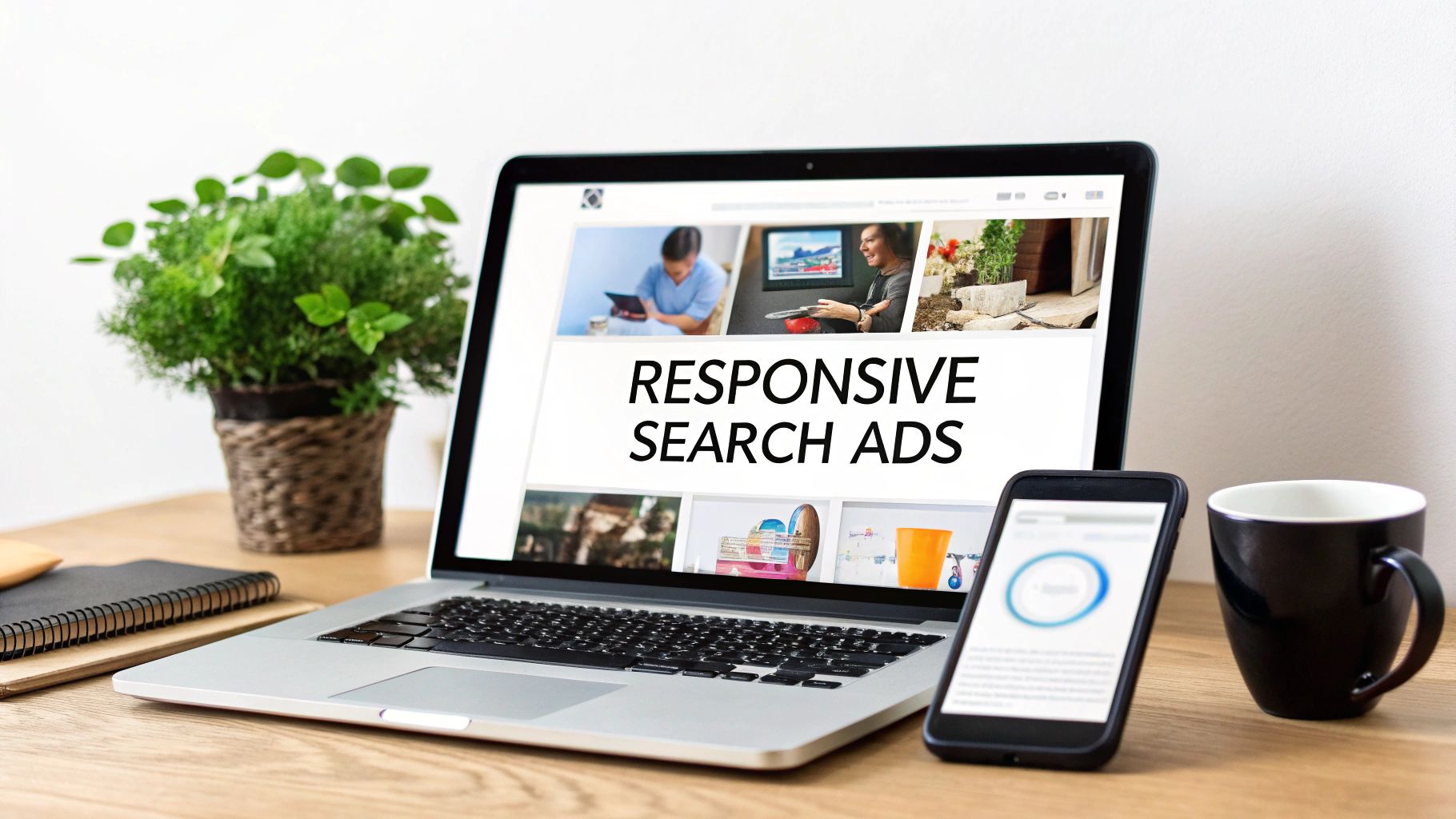
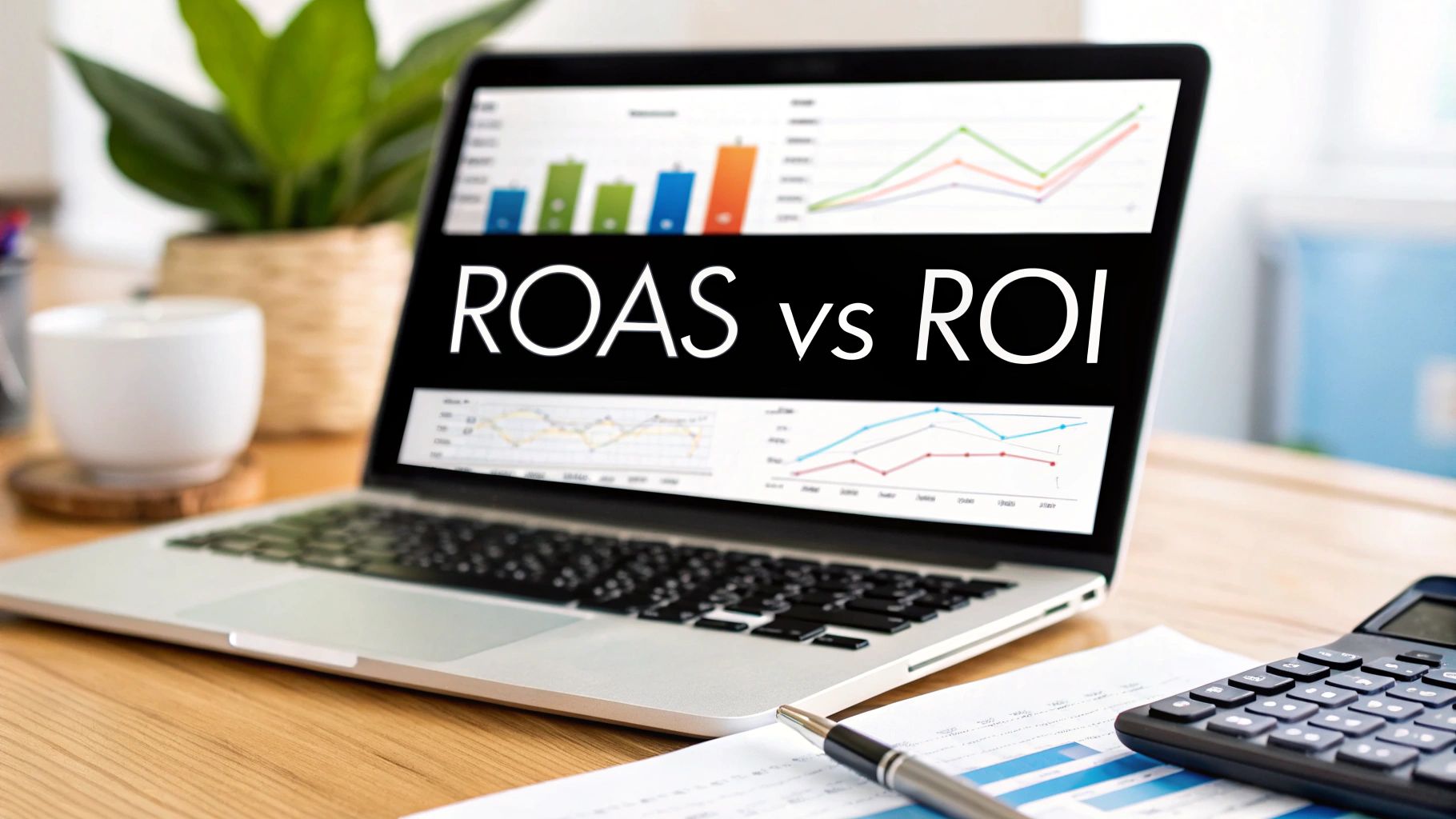
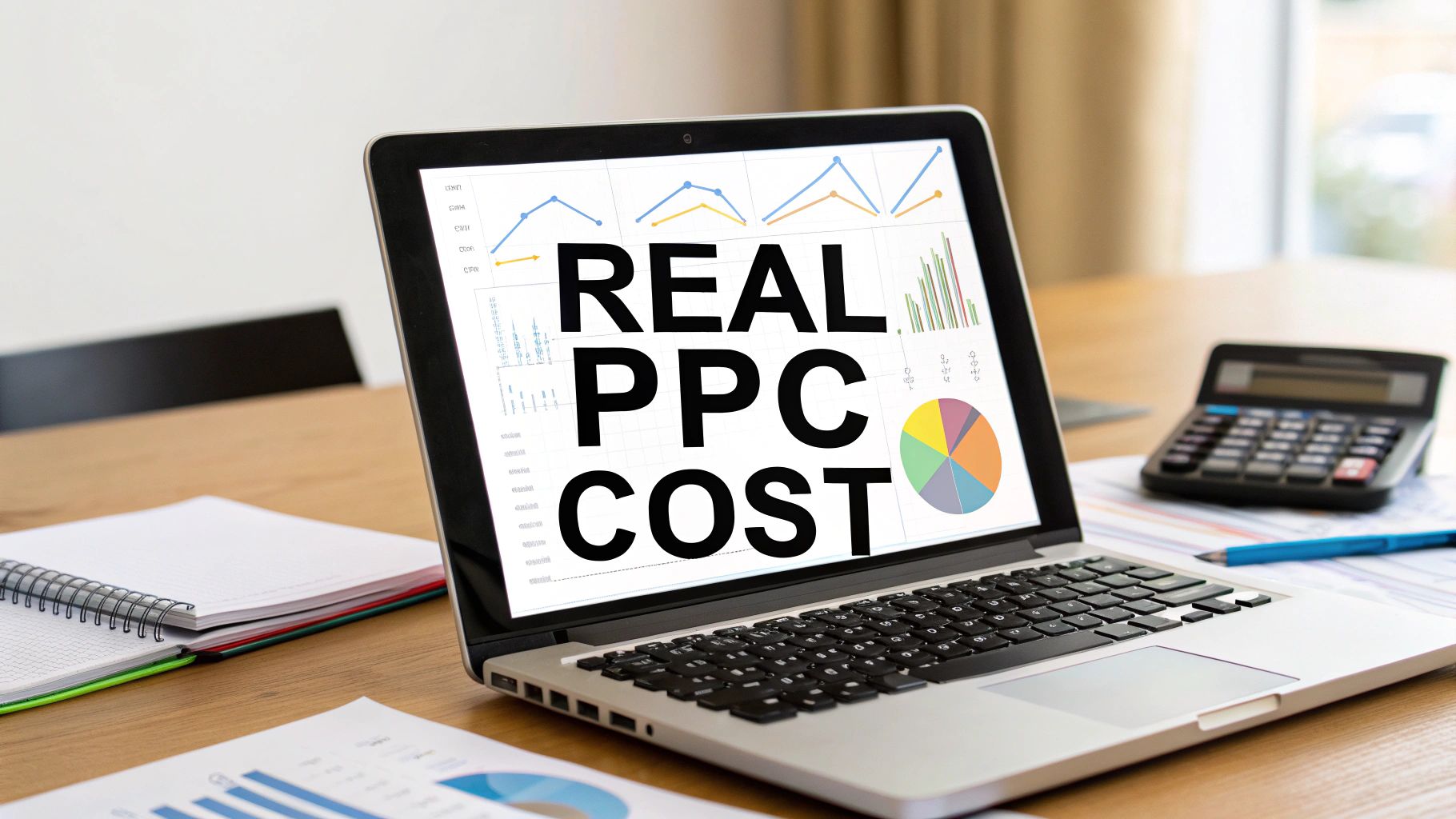
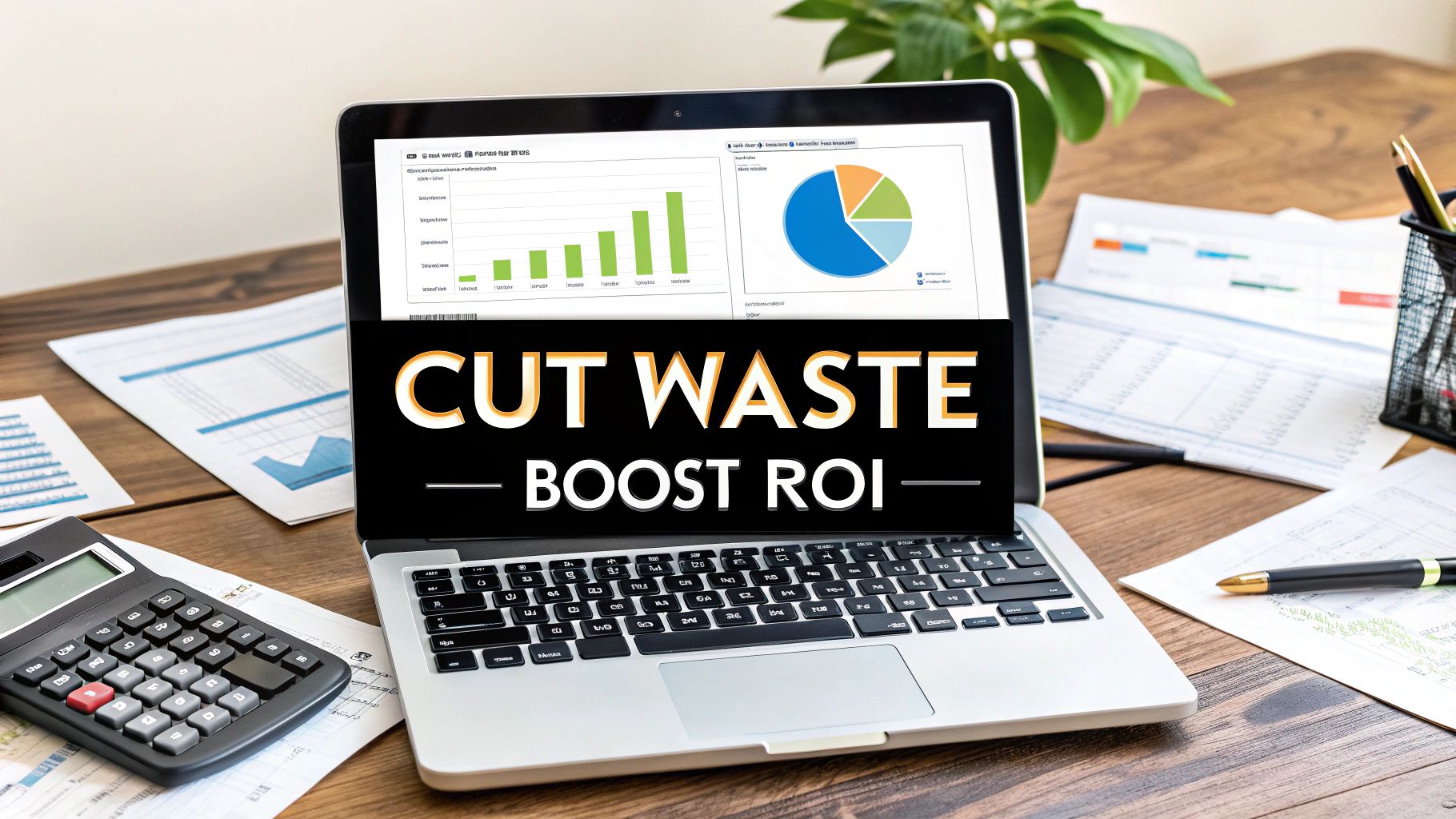
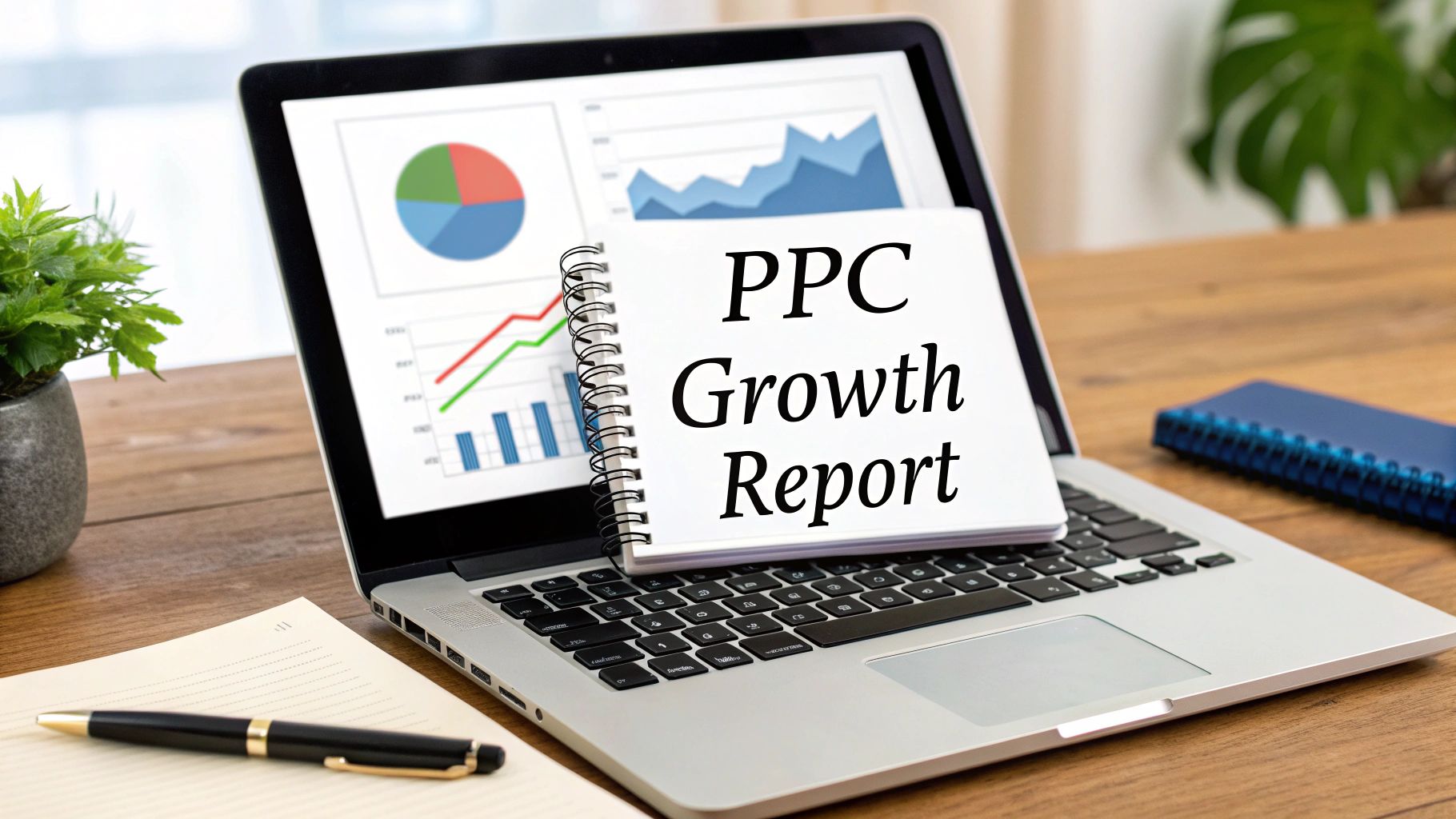
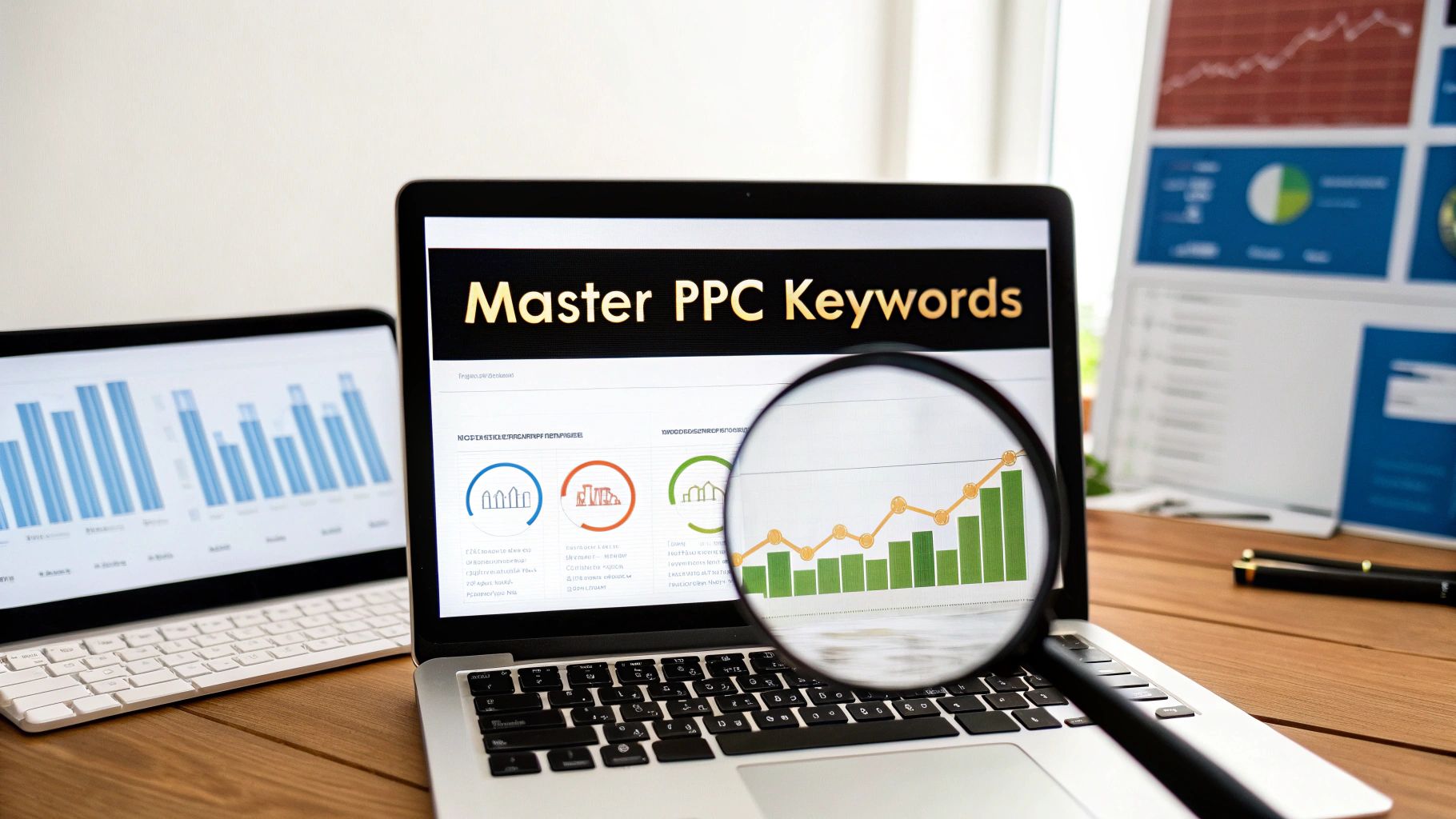
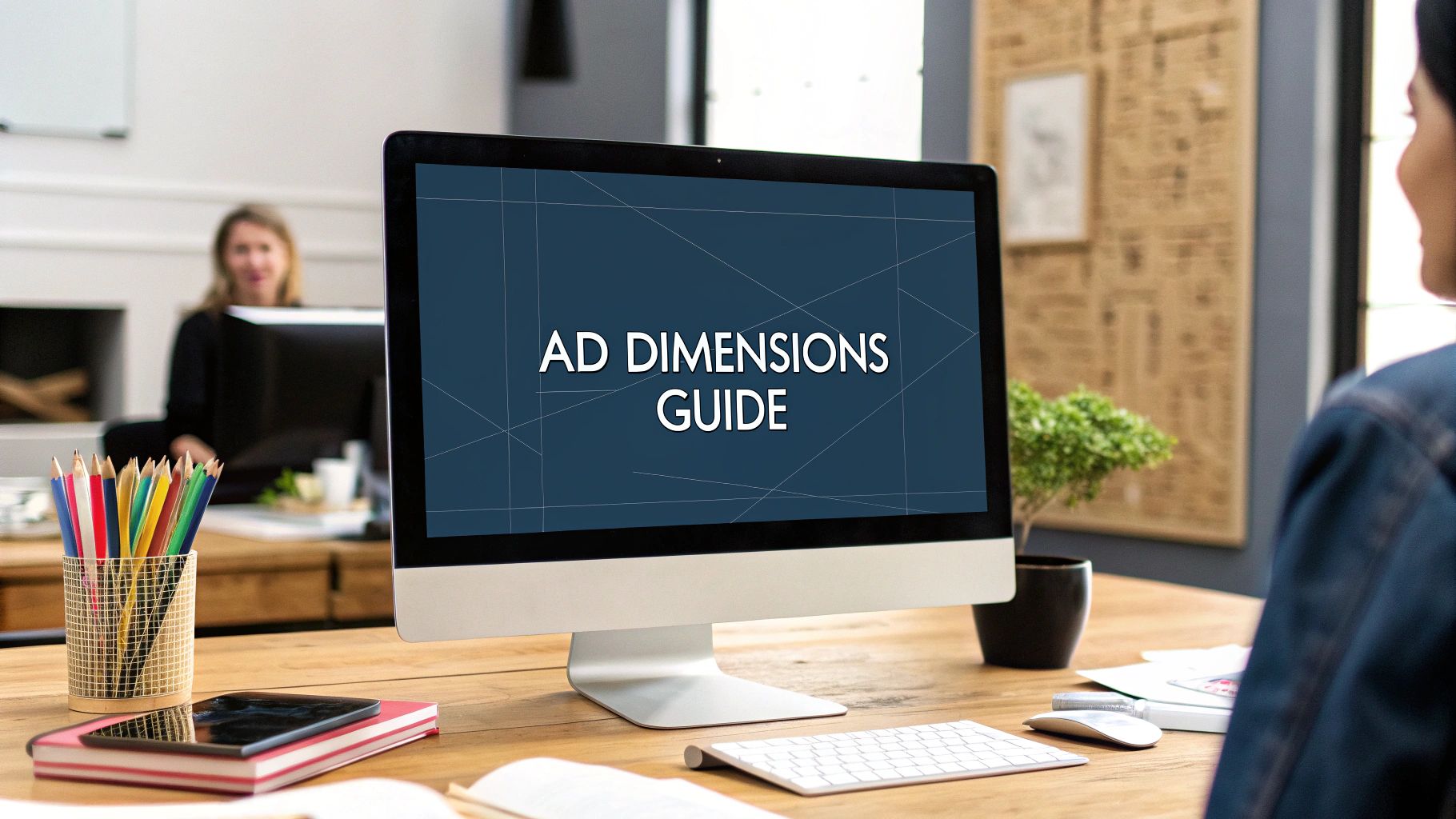
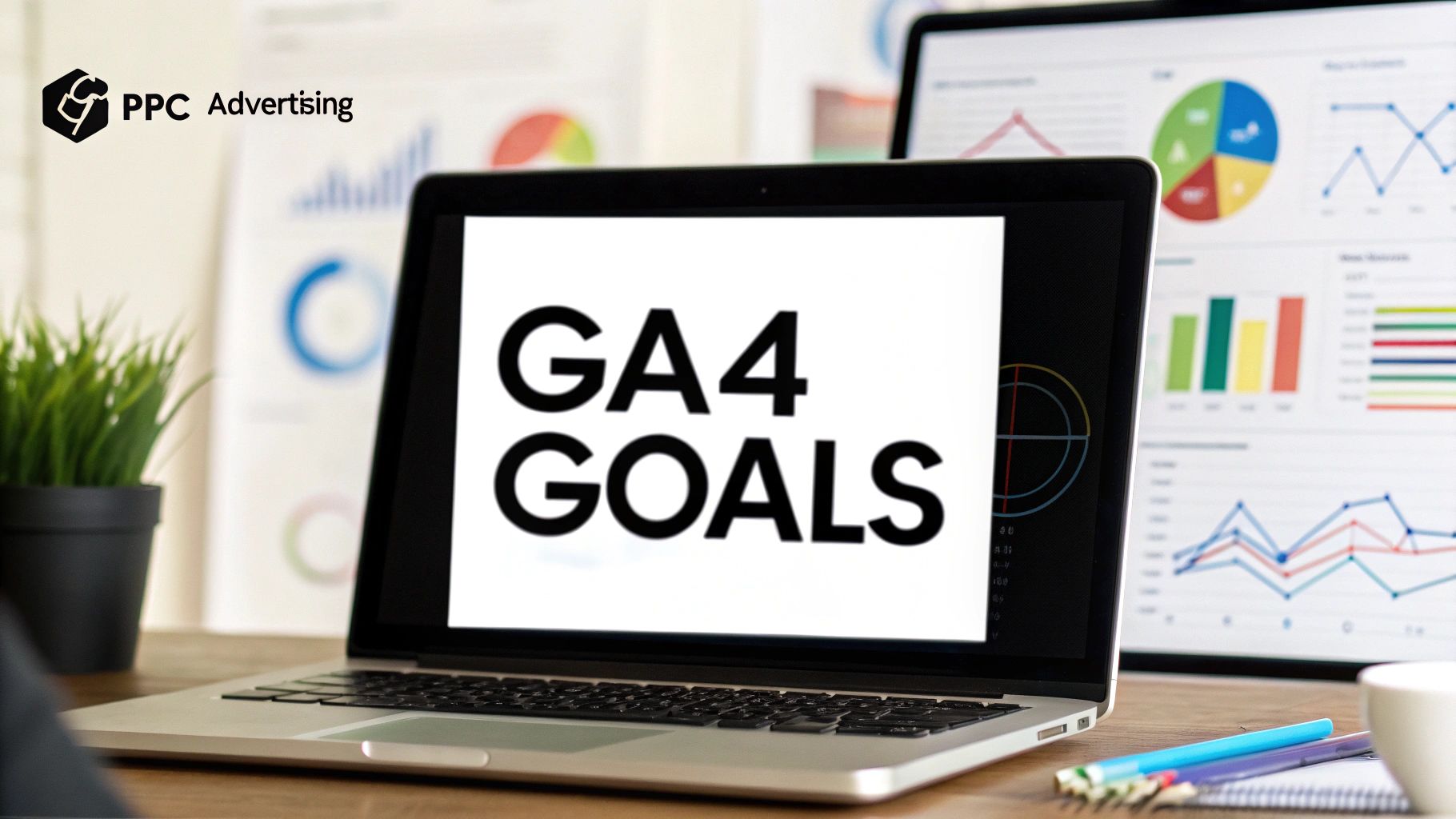
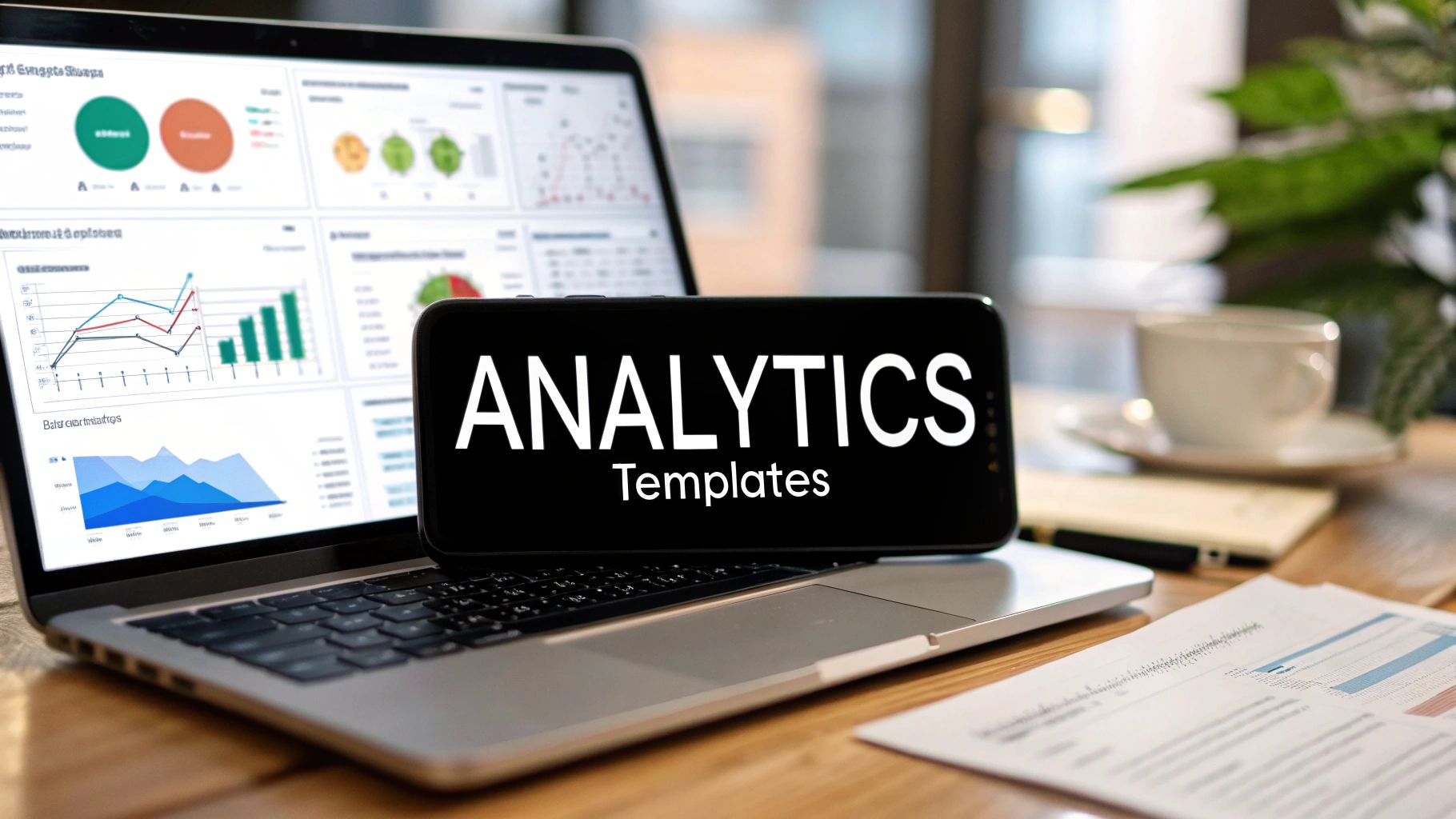
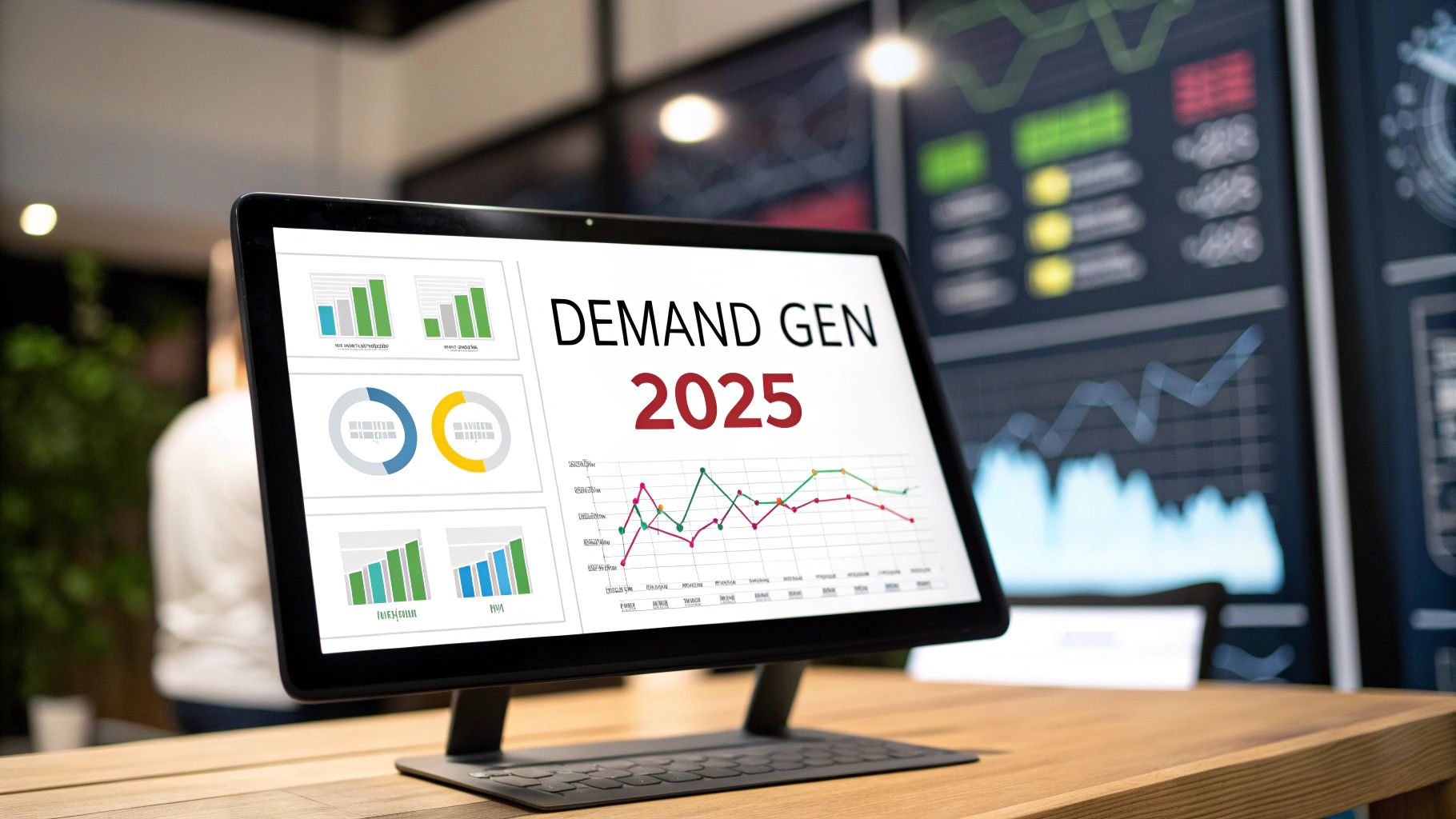
Comments